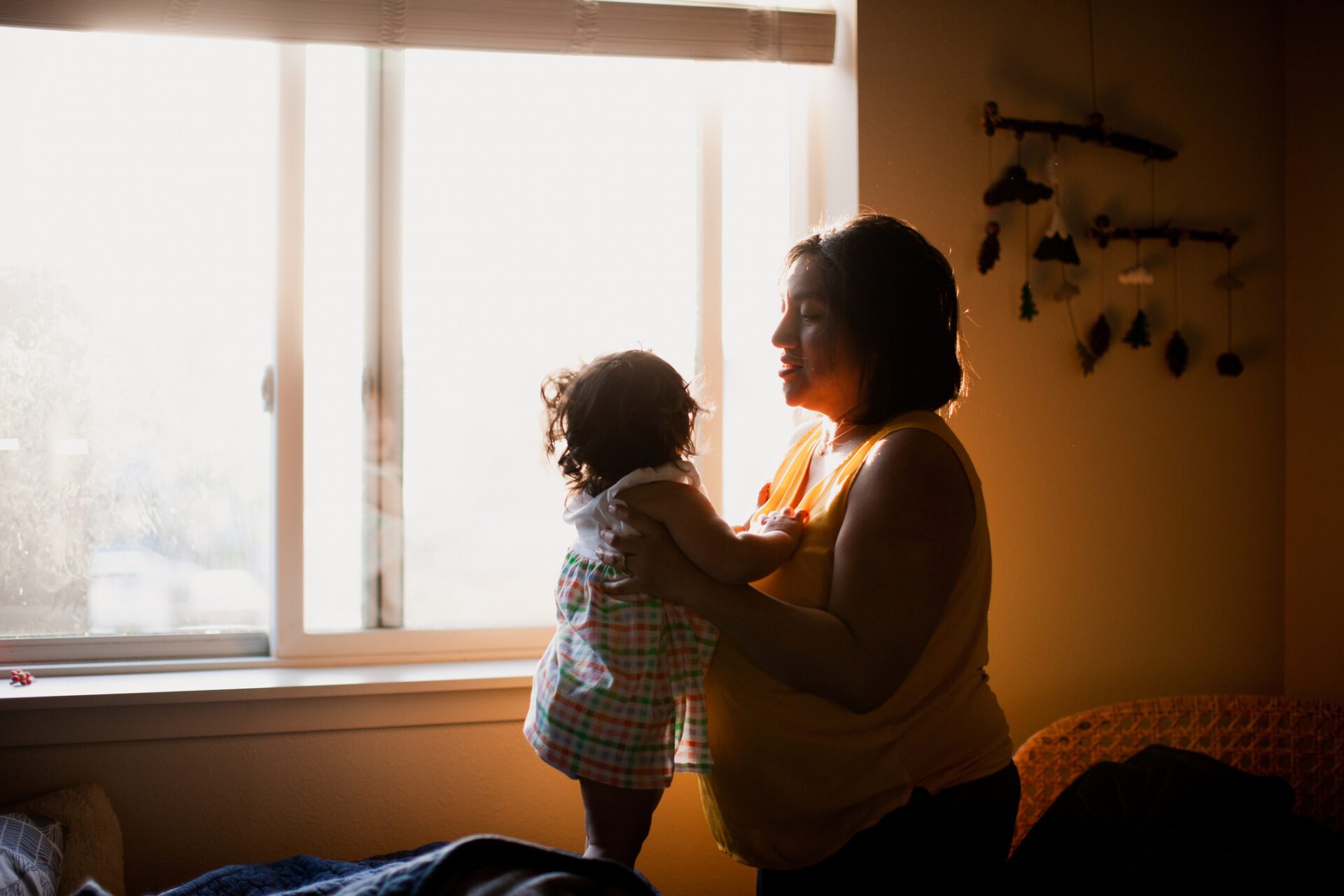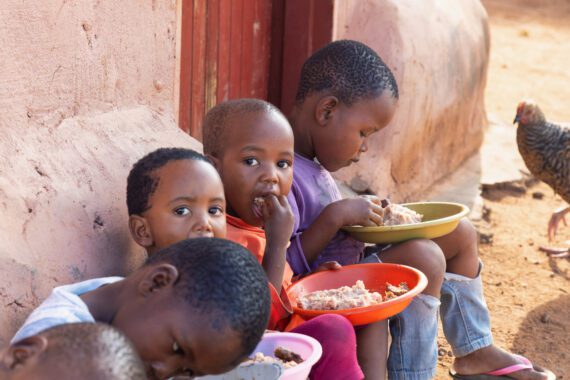As Bread for the World approaches its 50th anniversary celebration, the organization continues to advocate for effective policies to end hunger in the United States and around the world.
Bread’s newest policy campaign, Nourish Our Future (NOF), centers ending hunger and malnutrition among children. Our international focus includes improving child nutrition as well as reducing the impacts of debt distress and climate change on young people’s nutrition security. The U.S. domestic areas of focus include the Special Supplemental Nutrition Program for Women, Infants, and Children (WIC), a Child Tax Credit expansion, and college hunger.
The work on debt distress, for example, continues Bread’s longstanding focus on debt, most notably our leadership role in the Jubilee 2000 campaign. The Jubilee year in the Bible was meant to happen every 50 years. It was intended to be a year of liberation – an economic, cultural, and environmental reset and an expression of God’s desire for all creation to flourish. The Year of Jubilee was a year for releasing people from their debts, releasing enslaved people, returning property to its owners, and resting the land. It honored the principle that God’s people have a part to play in setting things right. Pope Francis has declared 2025 a Jubilee Year of Hope. Bread’s value of human flourishing also reflects the spirit of Jubilee.
Between 2000 and 2015, the Jubilee campaign, including Bread and its coalition partners, won $130 billion of debt cancellation for developing countries. Faith groups were the main U.S. supporters of the Jubilee campaign. The role of faith leaders in encouraging their members to contact their elected representatives about debt relief was pivotal. According to experts, the Jubilee campaign was one of the most successful movements aimed at ending poverty among millions of people.
But there is still work to do. According to the U.K. advocacy group Debt Justice, “The campaign did not prevent debt crises [from] recurring. The same structural causes that led to the crisis remain in place.”
In keeping with the NOF campaign’s focus on putting children at the heart of our advocacy, Bread calls on the United States and other countries that make financial contributions to international financial institutions (IFIs), such as the World Bank and the International Monetary Fund (IMF), to help alleviate debt burdens. This is particularly important in countries where child hunger is extremely high. The IMF defines debt distress as meaning that a country is unable to fulfill its financial obligations and debt restructuring is required.
The loans, their financing terms, and exactly who benefited from the borrowed money in the first place have for many years been sources of controversy. From Nigeria to Kenya to Bangladesh and everywhere in between, recent news reports have illustrated the efforts of young people to expose the impacts of debt on their lives, livelihoods, and futures. Public anger over budgetary cuts imposed so that debt payments could be made has sometimes spilled over into violence that endangers children and other civilians. The youth uprising that was in effect a “referendum” on proposed tax legislation in Kenya illustrates the risk of escalation and even violence in countries that are in or on the verge of debt distress.
According to U.N. sources, 3.3 billion people live in countries that spend more money on debt service and interest payments than on education or health. More than 200 million children live in countries in debt distress or at high risk of falling into it. The IMF lists 10 countries where children are impacted by debt distress: Sudan, the Republic of Congo, Ghana, Grenada, Lao People’s Democratic Republic, Malawi, São Tomé y Príncipe, Somalia, Zambia, and Zimbabwe.
An additional 26 countries at high risk of debt distress are: Afghanistan, Burundi, Cameroon, Central African Republic, Chad, Comoros, Djibouti, Dominica, Ethiopia, The Gambia, Guinea-Bissau, Haiti, Kenya, Kiribati, Maldives, Marshall Islands, Micronesia, Mozambique, Papua New Guinea, Samoa, Sierra Leone, South Sudan, St. Vincent and the Grenadines, Tajikistan, Tonga, and Tuvalu.
Bread is currently holding consultations with local and global policy experts to help make the Nourish Our Future policy platform as effective as possible. We are eager to learn more about which improvements in global financial policies are the most urgent and significant. These improvements will place children as the heartbeat of humane debt policies that prioritize nutrition and food security.
At a summit with international financial leaders, Pope Francis warned against what he described as the globalization of indifference. He encouraged the cancellation of debts that force unbearable sacrifices on millions of children who are mired in extreme poverty and lack food, housing, medical care, schools, electricity, drinkable water, and sanitation services. In a world of abundance, a country’s national debt cannot be seen as a higher priority than hunger and malnutrition among children. Bread joins with those who believe it is time to change that.
Abiola Afolayan is director, Policy and Research Institute, with Bread for the World.



